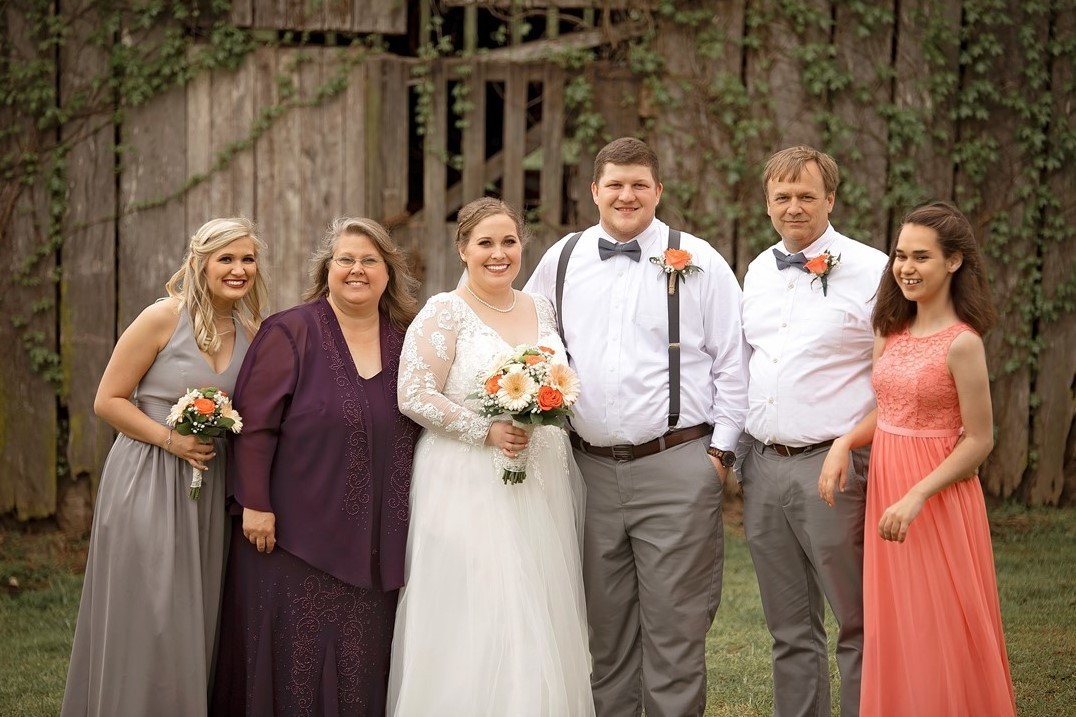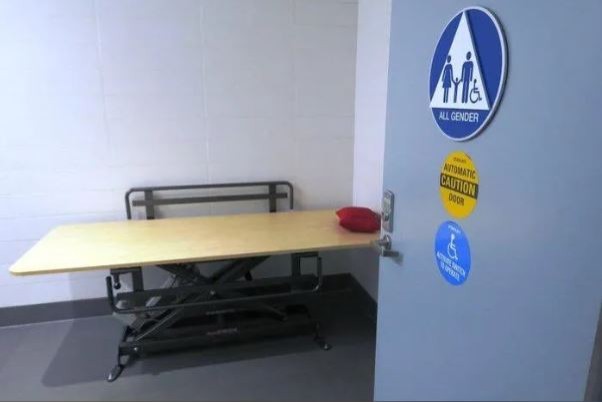Breaking Ground 102 - True Accessibility Means Dignity in Public Restrooms
By Chrissy Hood, Council on Developmental Disabilities member, South Central TN Development District
Chrissy Hood lives in Pulaski and is the mother of a teenage daughter with Phelan McDermid Syndrome, autism, epilepsy, cerebral palsy, and various complex medical conditions. Passionate about increasing access to information in rural communities for families who are impacted by disability, Chrissy founded a parent support group in her community. She is the Chair of the Giles County Special Needs Support Group and also serves as Family Liaison and volunteer for the Unlimited Special Needs Ministry.
Having two older and active sisters, our daughter Alaina has been on-the-go since she was a baby. We call her our social butterfly, because she loves to be around people. She enjoys attending Martin Methodist Redhawks volleyball, soccer, basketball, and softball games, and going to the mall to people-watch.
Alaina also has autism, cerebral palsy, epilepsy, and a disability called Phelan McDermid Syndrome, along with other complex medical needs. Being out in her community has gotten harder as Alaina has grown. One of the main barriers is one not many people think about: access to appropriate and accessible changing tables.
Approximately 200,000 Tennesseans (4% of the population) needs help with one or more activities of daily living. Help with toileting is a common need for adults who are aging or have disabilities and other conditions. Many adults and children need access to changing spaces that are larger than a baby changing table. Everyone deserves a safe, dignified, and clean toileting experience.
Though the need exists widely, most communities do not have any adult-sized changing tables. We have had to lay Alaina on the nasty bathroom floor, take her to our van to change her on the floor, or simply stay at home and keep her from being a part of her community. It affects the entire family. There have been many times we had to tell Alaina’s sisters we could not go to a specific event or place because we had nowhere to change Alaina.
This is not in line with civil rights and disability laws like the Americans with Disabilities Act and the Olmstead Act. Most people are not aware of the problem. That’s why I know it is important for me to tell my story. When I spoke to my legislators at Tennessee’s Disability Day on the Hill, I realized that people will support this issue once they hear our personal stories.
Would you want to change your loved one on a dirty bathroom floor or keep them isolated at home?
Accessibility is about more than being able to physically get into the restroom. Truly “universal” changing spaces are height-adjustable, adult-sized changing tables. This means the table is the length of an average adult when they lay down and can also go up and down so the person does not have to be lifted. This is safer for the person and their supporter.
Other states are starting to pass laws requiring universal changing tables in public spaces. In Arizona, a new law requires publicly-funded renovations or new buildings to include an adult changing table in family restrooms. Florida is considering a law that would require many public areas to have an enclosed, assisted-use toilet area. Similar bills have been proposed in California, Georgia, Maryland, Michigan, New Hampshire, New York, Ohio, Oklahoma, Pennsylvania, and Wisconsin.
There are bright spots of progress right here in Tennessee. For example, Alaina enjoys playing Miracle League accessible baseball. Our field in Lawrenceburg, Tenn. was organized through Abigail’s Plan, a nonprofit started by Tommy Lee Kidd (former Chair of the TN Council on Developmental Disabilities). During construction of the field, I talked to Tommy Lee about the need for a universal changing table. He immediately got on it, and one was installed in the third base bathroom. This is a huge blessing to the players and families. Earlier this year, Nashville International Airport installed a universal changing table that is height adjustable. This was a huge victory for many people with disabilities and their families who use the airport.
Policymakers, businesses, and advocates need to hear more stories to understand the need and the policy options to address this problem. The Centers for Disease Control estimates 30% of the population has a disability. Many of us will, at some point, support a loved one who needs care. Disability is the one minority population that any of us could join at any time. We can acquire a disability because of disease or an accident; if we are lucky to live long enough, many of us will likely age into disability. Disability issues are the responsibility of us all. Let’s make the world accessible and dignified for all of us.
Read more and get involved at https://dignifiedchanges.org/.
